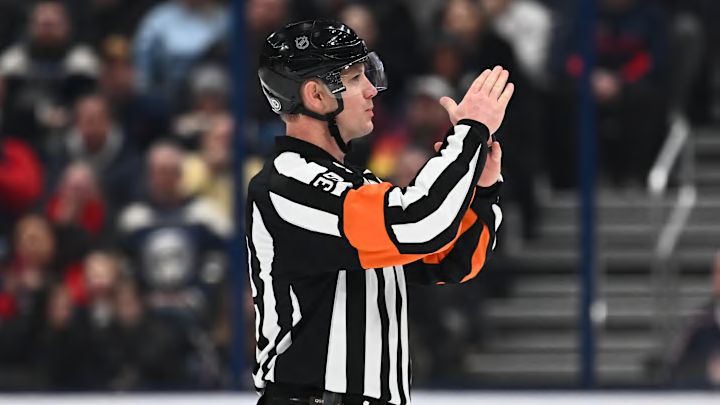The New Jersey Devils lost out on their fifth goal of the game on Friday night. Many Devils fans are up in arms about why. There was clearly a goal on the ice, but it was announced as no goal. The replay showed that the puck went across the line before the whistle was blown. It should have been a goal for Nico Hischier or Stefan Noesen.
It doesn't matter who would have gotten the goal because it was called no goal on the ice, and that's how it stood. After review from Toronto, the Devils remained at a 4-2 lead, which is how the game ended.
When it's all said and done, the call didn't matter. The final score was the same as it was at the time of the call, but that shouldn't stop us from talking about the call itself.
New Jersey Devils lose another goal due to the "intent to blow whistle" rule, which should be abolished.
Here is the rule from the NHL Rulebook, which isn't actually a rule. It's a part of Section 5, Rule 31, which discusses officials in general.
"As there is a human factor involved in blowing the whistle to stopNHL Rulebook
play, the Referee may deem the play to be stopped slightly prior to the
whistle actually being blown. The fact that the puck may come loose
or cross the goal line prior to the sound of the whistle has no bearing if
the Referee has ruled that the play had been stopped prior to this
happening. "
This is truly an insane rule. So we're allowing the referee to just pretend they know when they wanted to blow the whistle without blowing the whistle? How will we build trust in this sport if we're not allowing fans and analysts to trust their eyes and ears? A whistle should count as a whistle when we hear the whistle.
This isn't the first time the Devils have seen what appeared to be a sure goal taken off the board due to this "rule." That was a 4-0 drubbing at the hands of the Colorado Avalanche. That was just one of those nights where nothing went right, including the calls from the referees.
Welp... no goal. 🙄
— New Jersey Devils (@NJDevils) December 9, 2024
We play on. https://t.co/2qtSxzg4KT
Truly, this comes down to the referee "losing sight of the puck." Many goals are taken off the board because referees lose sight of the puck when it's actually lose in front of the net. They assume that the goalie is on top of it, and they are trying to avoid offensive players pushing the goalie into the net or a possible dangerous play. The big difference here is the ref blows the whistle. If the referee loses sight of the puck, they need to be instructed to either find it or blow the play dead.
This is really something that feels like amateur hour. The NHL needs to seriously consider how they approach this rule in the offseason. There's no way they change this now, but they should make this more black and white.
